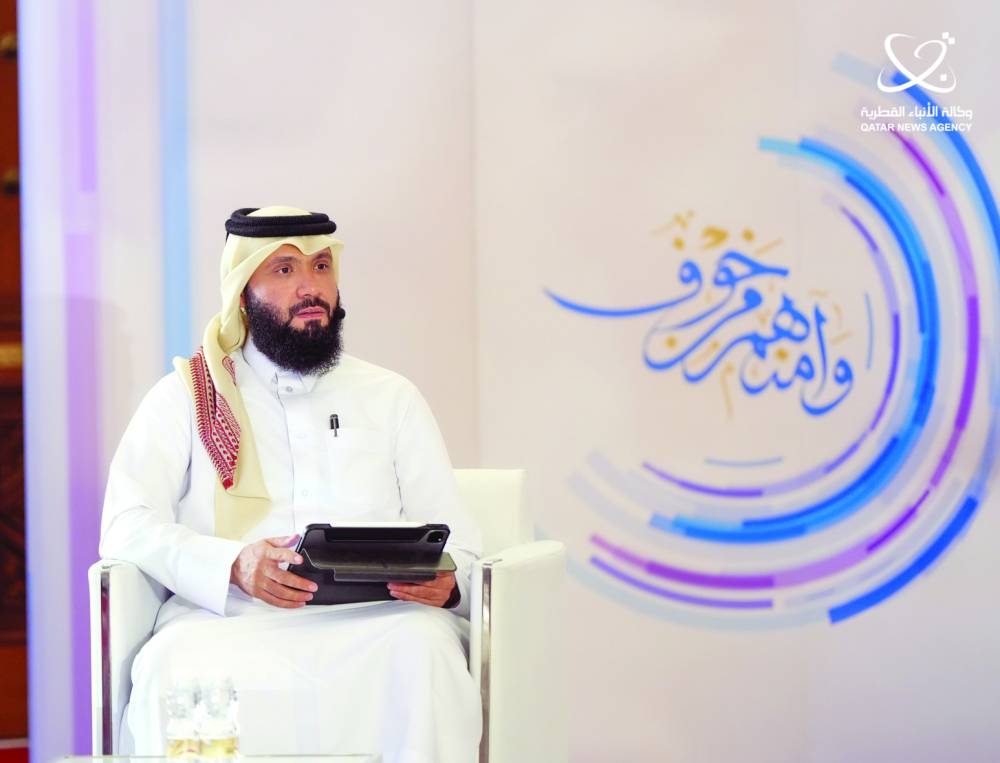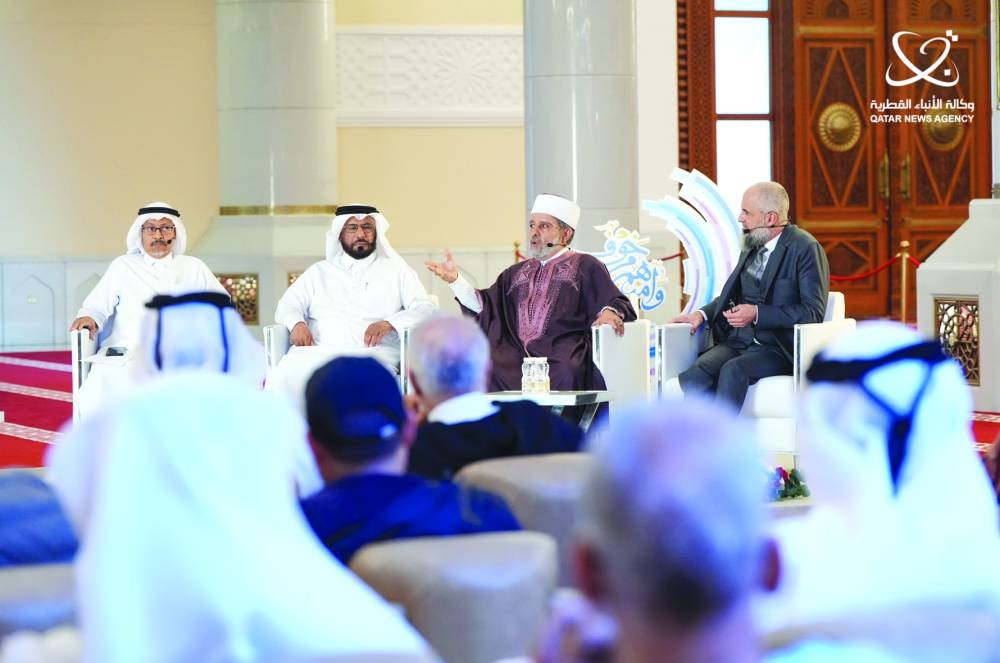The third session of the Ramadan talk show *Wa Amenhum Min Khawf organised by Ministry of Endowments (Awqaf) and Islamic Affairs, represented by the Department of Da'wah and Religious Guidance, discussed ways to utilise modern technologies to spread the correct image of Islam and how to optimally use artificial intelligence (AI).
Participants in the session, titled "Introducing Islam in the Age of Artificial Intelligence", reviewed the key challenges posed by modern technologies, particularly AI, with one of the main challenges being the lack of reliable sources for the information presented to the public.
They emphasised that these technologies need continuous updates, with input from experts and clients, particularly in the religious domain.
Professor at Qatar University (QU)’s College of Sharia and Islamic Studies, Dr Sultan al-Hashimi, emphasised the importance of collective institutional work, stating that individual efforts are not suitable in today's era.
He said that AI aims to create systems and programs capable of simulating human intelligence, such as learning, thinking, decision-making, and problem-solving.
Dr al-Hashimi pointed out that AI is not all-knowing, and that no matter how advanced it becomes, there is always a need for religious scholars to achieve the desired goal.
He also stressed that it is crucial for information provided by AI platforms to be based on reliable sources and known scientific authorities, such as the Ministry of Awqaf and the Research Department, rather than individual sources.
Dr al-Hashimi cautioned that speed may lead to overlapping and inaccurate information.
He cited some electronic applications that cannot be considered accurate references at all stages, especially the online Quranic clips shared on social media, which have many issues.
The expert emphasised the importance of using certified electronic Mushafs issued by recognised regulatory authorities and relying on well-established sources when seeking specific religious information.
He called on the ministry to establish a specialised unit for AI to keep up with developments, monitor everything new, and provide information in a scientifically accurate manner, utilising the expertise of scholars and experts to avoid errors and inaccurate information encountered by users on AI platforms.
Dr Abdel Fattah Mohammed Saad, professor at Hamad Bin Khalifa University (HBKU)’s College of Islamic Studies, said that AI is one of the most important issues of our time, noting that modern communication technologies and programs present an opportunity to spread Islam, but emphasised the need for governance and control over these programs.
He spoke about the ethical challenges associated with the use of AI, saying that when AI programs address issues related to Islam, one must ask: “Who provided AI with information about Islam.”
“This is where the danger lies,” Dr Saad said. “If AI is given incorrect information about Islam, it will transmit that incorrect information, which could distort the true message of Islam.”
“The entities which supplied the information may not be well-versed in the principles of Islam, highlighting the need for governance of these devices,” he added.
Dr Christian Tancredi, a preacher at Sheikh Abdullah Bin Zaid Al Mahmoud Islamic Cultural Centre, said that chatbots could answer questions from those with doubts about Islam, provided the programmer is a qualified Muslim and has been given correct sources and guidance.
He pointed out that pre-made content, such as books and articles, does not adapt to the participant.
Dr Tancredi said that clarity, eloquence, and accuracy are essential in this content, and highlighted the challenges associated with AI.
He said that Islamic preaching should recognise the limits of these technologies and avoid attributing to AI what it does not deserve.
“It is merely a tool,” Dr Tancedi pointed out, and cautioned against placing complete trust in AI.
Dr Nour al-Din al-Khadimi, professor at the QU’s College of Sharia, said that AI is a double-edged sword.
He questioned how AI could be used to “issue” legal opinions (fatwas) and whether it could deliver judgments in matters related to the conscience of a judge, especially in criminal cases involving the preservation of life.
Dr al-Khadimi also wondered how AI could teach, train, and develop the skills and abilities necessary for acquiring knowledge.
He praised Qatar's large-scale project related to the use of AI, commending the national and institutional efforts, as well as the contributions from civil society organisations, research centres, and experts in the field.

OPTIONAL

